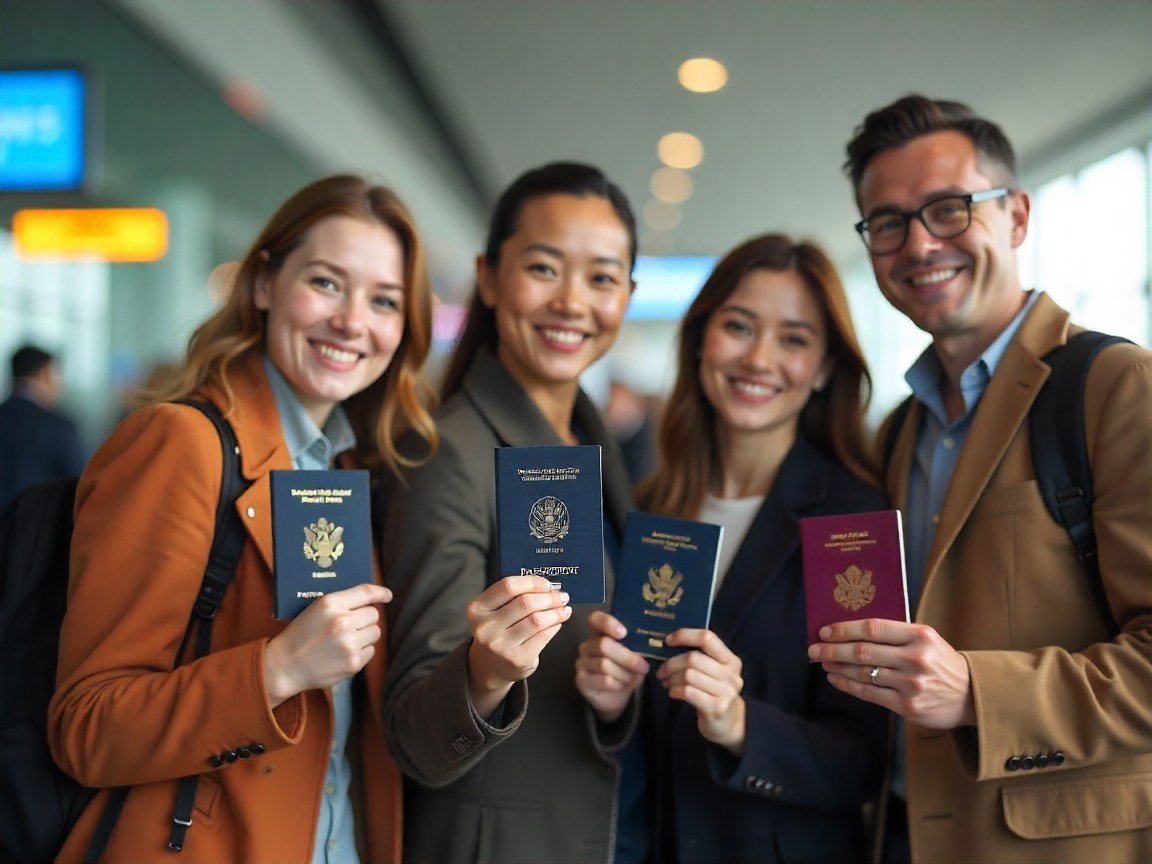Asia Travel Pulse
L’Oréal sales slip in Q2 as North Asia and travel retail lag

By
Bloomberg
Published
July 29, 2025
L’Oréal, the French beauty giant known for brands such as Lancôme, Maybelline and CeraVe, reported weaker-than-expected sales in the second quarter, as a slowdown in North Asia, travel retail, and its core European market weighed on results.
Quarterly revenue fell by 1.3% year-over-year to €10.73 billion ($11.7 billion), the company said Tuesday evening. The drop was steeper than analysts had expected, and revenue in North Asia—particularly China and South Korea—saw a significant decline that gains in other global markets could not fully offset.
On a like-for-like basis, which excludes currency fluctuations and acquisitions or divestments, group sales rose 2.4%, falling short of the 2.9% growth projected in a Visible Alpha consensus estimate cited by Jefferies. Total revenue for the April–June period reached €10.74 billion ($12.38 billion). Adjusted for the phased rollout of a new IT system, underlying growth stood at 3.7%, according to the company.
L’Oréal is facing sluggish consumer spending in China due to stagnant wage growth, high youth unemployment, and continued uncertainty surrounding former U.S. President Donald Trump’s tariff policies. Demand in Asian travel retail channels also remained weak.
Global cosmetics market growth has slowed significantly in recent quarters from the highs of the post-pandemic rebound, when inflation drove up sales values. The sector—especially the fragrance category, which is predominantly produced in Europe—is also grappling with rising costs tied to tariffs.
In response to the European Union’s recent agreement to impose a 15% tariff on U.S. imports of EU cosmetics, L’Oréal CEO Nicolas Hieronimus voiced concern and revealed plans to lobby for an exemption. “I don’t think it’s a good deal,” he told Reuters. “We’re going to be writing to all the European leaders and negotiators to see whether there’s a loophole we could benefit from, because ultimately, this could prove costly.”
L’Oréal, which imports around 30% of its U.S. sales, may raise prices and shift more production to its four American factories. However, Hieronimus said the group is holding off on any decisions until further negotiations between the U.S. and other nations are finalized.
While analysts at Jefferies expect U.S. perfume sales to slow in the second half as companies raise prices, Hieronimus noted that L’Oréal’s fragrance segment is currently growing at double-digit rates, compared to 7% for the broader market. “There is some pricing power on fragrances, but we also have to consider how sensitive demand is to price changes,” he added.
Following the earnings release, L’Oréal shares fell by around 1% in after-hours trading on the Tradegate platform.
FashionNetwork.com with Bloomberg
Asia Travel Pulse
China, Malaysia, India, Russia, and South Korea Lead the Way as Bangkok Tops Global Travel Lists for Summer 2025

Thursday, August 7, 2025
Author: TTW News Desk
As summer 2025 draws near, Bangkok has once again emerged as one of the top global travel destinations, with travelers from China, Malaysia, India, Russia, and South Korea driving the surge in bookings. These countries are leading the charge due to a combination of factors: Bangkok’s rich cultural heritage, modern amenities, and exceptional hospitality, which continue to attract visitors seeking both authentic experiences and luxury. The Thai capital’s appeal lies in its unique ability to blend vibrant street culture with world-class shopping, historic landmarks, and sustainability-focused tourism practices. As Bangkok secures its position at the top of global travel lists, the influx of tourists from these regions underscores the city’s enduring popularity despite global challenges.
A City That Blends Tradition and Modernity
Bangkok’s lasting popularity is a testament to its ability to blend its rich cultural heritage with modern conveniences. From ancient temples and palaces to cutting-edge shopping malls and vibrant nightlife, the city offers a diverse array of experiences that appeal to a wide range of travelers. Visitors come for the authentic street food culture, bustling markets, and iconic landmarks like the Grand Palace and Wat Pho, while also enjoying world-class hotels, restaurants, and shopping destinations.
In addition to its cultural draw, Bangkok is known for its high standards of service and international safety protocols, ensuring that travelers from all over the world can experience the city with confidence. This combination of heritage, modernity, and hospitality makes Bangkok a unique and enduring favorite for global travelers.
Experiential and Sustainable Travel Trends
The growing demand for experiential travel is a key factor behind Bangkok’s continued success. Travelers are increasingly seeking destinations that offer more than just sightseeing—they are looking for deeper cultural connections and opportunities to engage with local traditions. Bangkok excels in this regard, offering visitors the chance to immerse themselves in the city’s history and culture while still enjoying the convenience and luxury of modern amenities.
Moreover, Bangkok has positioned itself as a sustainable travel destination, promoting responsible tourism practices. Efforts to protect the city’s natural and cultural resources are part of a broader push by the Thai government to ensure that tourism growth does not come at the expense of the environment or local communities. This focus on sustainability has resonated with travelers who are more conscious about their environmental impact.
Tourism Trends Reflect Bangkok’s Enduring Popularity
Thailand’s tourism statistics further highlight Bangkok’s status as a top global destination. From January 1 to August 3, 2025, the country welcomed over 19.6 million international visitors, with Bangkok continuing to be the most popular entry point. The top countries sending tourists to Thailand this year include:
China: 2,733,160 visitors
Malaysia: 2,700,103 visitors
India: 1,390,693 visitors
Russia: 1,124,467 visitors
South Korea: 918,372 visitors
China’s return to the top spot reflects a rebound in outbound travel from the region, following the lifting of pandemic restrictions. This resurgence in Chinese tourists is significant for Thailand, which has long been a favored destination for travelers from China. The steady influx of visitors from other regions, including Malaysia, India, and South Korea, further demonstrates Bangkok’s widespread appeal across Asia and beyond.
Promoting Thailand as a Global Tourism Leader
The Thai government continues to play a key role in maintaining Bangkok’s status as a leading global tourism destination. A focus on promoting sustainable tourism, preserving cultural heritage, and supporting local businesses is central to the country’s tourism strategy. Through initiatives that prioritize responsible tourism and environmental protection, Thailand is ensuring that its tourism sector grows in a way that benefits both travelers and local communities.
Additionally, the government has placed a strong emphasis on enhancing Bangkok’s image as a safe, modern, and culturally rich city that offers an exceptional travel experience. With ongoing efforts to improve infrastructure and services, Bangkok is positioning itself to remain at the forefront of global travel trends.
A Vibrant and Resilient Bangkok
Although Bangkok is commonly linked with heavy traffic and bustling streets, the city’s enduring appeal is evident in its ability to remain a leading destination for global travelers. Whether it’s exploring ancient temples, enjoying world-class shopping, or indulging in its diverse culinary scene, Bangkok offers something for everyone. The city’s ability to adapt to the changing demands of global travelers while staying true to its cultural roots ensures that it remains an exciting and relevant destination for years to come.
As global tourism continues to recover, Bangkok stands as a testament to the enduring appeal of destinations that offer a rich cultural experience, modern amenities, and a commitment to sustainability. The city’s success in attracting millions of visitors, despite the challenges of recent years, reflects its unique ability to evolve and thrive in a rapidly changing world.
Tourists from China, Malaysia, India, Russia, and South Korea are driving Bangkok’s rise as one of the top global destinations for summer 2025, thanks to its rich culture, modern amenities, and focus on sustainable tourism.
In 2025, Bangkok continues to be a beacon of cultural richness, hospitality, and innovation, making it one of the most exciting places to visit for travelers seeking unforgettable experiences.
Asia Travel Pulse
2025 Travel Breakthrough: Top Asian Passports with Verified Visa-Free Access, All You Need to Know

Thursday, August 7, 2025
Author: TTW News Desk
As global mobility steadily recovers and expands in 2025, certain Asian passports have become key enablers of seamless international travel, offering unparalleled visa-free access to a growing number of destinations. Supported by government-issued visa exemption agreements, Japan, South Korea, Singapore, Malaysia, the United Arab Emirates and Hong Kong SAR are leaders in the international community with regards to visa-free access. This document analyzes how the leading Asian passports are transforming travel in 2025, drawing from credible sources, including government ministries and consular officials.
Japan continues to be a leader in visa-free access, with entry to 72 countries and regions as confirmed by the Ministry of Foreign Affairs (MOFA). Japanese nationals enjoy short-term visa-free access to key regions across Europe, Asia and the Americas. Furthermore, Japan’s reciprocal visa recognition agreements with countries like Singapore, Malaysia and South Korea reinforce its role in fostering interconnected mobility within Asia.
The South Korean passport remains among the top-ranked in Asia, particularly due to its participation in official visa waiver programs, most notably with Japan and ASEAN member states. While the Ministry of Foreign Affairs of South Korea does not publish a complete list, Japan officially recognizes South Korea as a visa-exempt country, providing visa-free access to its citizens. Additionally, the temporary waiver of the Korean Electronic Travel Authorization (K-ETA) through 2025 further enhances South Korea’s travel prospects.
The Singaporean passport holds a significant place among Asia’s most powerful travel documents, backed by an extensive network of bilateral agreements. Although a consolidated list is not available, countries such as Japan and members of the European Union (EU) provide visa-free access for Singaporean passport holders. Singapore’s consistency in diplomacy and visa facilitation ensures its continued leadership in global mobility.
With visa-free access to over 180 countries, the Malaysian passport is another major player in Asia’s travel landscape. Official information from Japan’s Ministry of Foreign Affairs shows that Malaysian citizens hold visa exempt status which allows them to visit Japan for up to 90 days. This level of access granted reflects the strides made by ASEAN in facilitating travel within the region.
Although not part of East Asia, the UAE passport is a force to be reckoned with, offering visa-free access or visa-on-arrival access to more than 82 destinations globally, according to the UAE Ministry of Foreign Affairs. The UAE’s strategic diplomatic policies continue to unlock new travel opportunities across Africa, Asia, and Europe, positioning it as a major hub for global mobility.
Hong Kong SAR, as part of China but with its own distinct global policies, continues to provide one of the most powerful passports in Asia. Official listings from the Japanese government confirm that Hong Kong passport holders enjoy visa-free access. This autonomy in travel agreements ensures that the Hong Kong SAR passport remains a highly mobile travel document in 2025.
The year 2025 sees top Asian passports continuing to dominate global mobility rankings. These passports, underpinned by transparent visa policies and government-to-government agreements, offer enhanced visa-free access to international travel. Japan, South Korea, Singapore, Malaysia, UAE and Hong Kong SAR stand to receive tangible rewards from their strong international relations, placing their people ahead of the international travel renaissance. Through encouraged international visa-free travel, and consistent international relations, these countries serve as a model for the future of unimpeded travel in Asia and the rest of the world.
Government Sources:
- Ministry of Foreign Affairs of Japan (MOFA)
- Ministry of Foreign Affairs of South Korea
- Singapore Ministry of Foreign Affairs
- Ministry of Foreign Affairs of Malaysia
- UAE Ministry of Foreign Affairs
- Hong Kong SAR Government Official Travel Information
Asia Travel Pulse
Thailand Aims to Revive Tourism as Chinese Visitor Numbers Plummet

Wednesday, August 6, 2025
Author: TTW News Desk
Tourism in Thailand, an important pillar of its economy, is having a tough year in 2025. International tourist arrivals have fallen 5%, led predominantly by a fall in visitors from China and competition from alternative destinations in Asia.
Between January 1 and July 5, 2025, Thailand received 16.8 million international visitors, lower than 17.7 million during the same period last year. The largest decrease was from neighboring nations, which dropped by 12.2%, with East Asia also experiencing a steep 24.8% decline. The main reason being the smaller number of Chinese tourists, which dipped by 34.2% from pre-pandemic 2019 levels.
Shifting Tourist Demographics
While long-haul travelers from markets like India, Japan, Singapore, Australia, and the U.S. have increased, their numbers remain relatively small, accounting for only 28% of total arrivals. These tourists typically spend more, but their growth cannot fully compensate for the loss of Chinese visitors.
Before the pandemic, China was Thailand’s largest tourism market, supplying 28% of all international arrivals—about 11.1 million visitors in 2019. However, Chinese tourists now make up just 13.6% of total arrivals. Estimates suggest that 2025 will mark the first time in over a decade (excluding COVID-19 years) that Chinese tourist numbers fall below 5 million.
Government Measures to Revive Tourism
Tourism contributes 20% of Thailand’s GDP, making its recovery crucial. The Thai government has introduced several initiatives to counter the downturn:
1. Delaying the Tourist Fee
Originally set for 2025, the government postponed the “Kha Yeap Pan Din” fee (a 300 THB charge for air arrivals and 150 THB for land/sea entries) to mid-2026. The funds will enhance tourist facilities and provide insurance coverage for foreign visitors.
2. Subsidies for Charter Flights
To attract more visitors, authorities are offering 350,000 THB per charter flight. New partnerships with travel agencies in Chongqing, Lanzhou, and Hangzhou aim to bring an additional 150,000 Chinese tourists to Thailand.
3. Digital Entry System
Earlier in 2025, Thailand launched a digital entry system, replacing paper-based immigration checks with a faster, online registration process to improve the traveler experience.
Factors Behind the Decline in Chinese Tourists
Several key factors contribute to the drop in Chinese visitors:
1. Economic Slowdown in China
China’s economic challenges, including a sluggish property market and weaker consumer spending, have led to reduced outbound tourism. Middle-class travelers, who once fueled Thailand’s tourism boom, are now more cautious with discretionary spending.
2. Rising Competition from Other Destinations
Countries like Vietnam, Japan, and South Korea have aggressively marketed themselves to Chinese tourists, offering easier visa policies and new attractions. Japan’s weakened yen, for example, has made it a more affordable option compared to Thailand.
3. Changing Travel Preferences
Post-pandemic, Chinese tourists are favoring shorter trips and domestic travel over long international vacations. The popularity of “revenge travel” within China has also diverted potential visitors away from overseas destinations.
4. Safety Concerns and Negative Perceptions
Reports of scams targeting tourists and safety incidents in Thailand have circulated on Chinese social media, damaging the country’s reputation as a secure destination. The Thai government is working to address these concerns through tighter regulations and public awareness campaigns.
Private Sector Initiatives in Thailand
Hotels, airlines, and tour operators are also adapting to the changing market:
- Discounts and Bundled Packages – Many resorts are offering all-inclusive deals to attract budget-conscious travelers.
- Luxury and Wellness Tourism – High-end hotels are focusing on medical tourism and wellness retreats, particularly targeting European and Middle Eastern visitors.
- Sustainable Tourism – Eco-friendly resorts and community-based tourism projects are gaining traction among environmentally conscious travelers.
Future Outlook for Thai Tourism
Experts are of the view that these stimulus steps will begin yielding fruit by the end of 2025. Assuming no serious disruptions, Chinese tourist arrivals may return to 70-80% of pre-pandemic levels towards the end of 2026.
Thailand, despite present difficulties, is a leading travel destination, and the efforts of the government seek to reinstate it as a player in the international tourism arena. The emphasis currently is on diversifying sources of visitors and improving traveler convenience in a bid to develop long-term growth.
-

 Brand Stories2 weeks ago
Brand Stories2 weeks agoBloom Hotels: A Modern Vision of Hospitality Redefining Travel
-

 Brand Stories2 weeks ago
Brand Stories2 weeks agoCheQin.ai sets a new standard for hotel booking with its AI capabilities: empowering travellers to bargain, choose the best, and book with clarity.
-

 Destinations & Things To Do3 weeks ago
Destinations & Things To Do3 weeks agoUntouched Destinations: Stunning Hidden Gems You Must Visit
-

 Destinations & Things To Do2 weeks ago
Destinations & Things To Do2 weeks agoThis Hidden Beach in India Glows at Night-But Only in One Secret Season
-

 AI in Travel3 weeks ago
AI in Travel3 weeks agoAI Travel Revolution: Must-Have Guide to the Best Experience
-

 Brand Stories1 month ago
Brand Stories1 month agoVoice AI Startup ElevenLabs Plans to Add Hubs Around the World
-

 Brand Stories4 weeks ago
Brand Stories4 weeks agoHow Elon Musk’s rogue Grok chatbot became a cautionary AI tale
-

 Brand Stories2 weeks ago
Brand Stories2 weeks agoContactless Hospitality: Why Remote Management Technology Is Key to Seamless Guest Experiences
-

 Asia Travel Pulse1 month ago
Asia Travel Pulse1 month agoLooking For Adventure In Asia? Here Are 7 Epic Destinations You Need To Experience At Least Once – Zee News
-

 AI in Travel1 month ago
AI in Travel1 month ago‘Will AI take my job?’ A trip to a Beijing fortune-telling bar to see what lies ahead | China













You must be logged in to post a comment Login